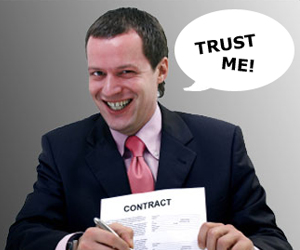Timeshare salespeople are often stereotyped as being unscrupulous and dishonest. While not all timeshare salespeople engage in deceptive practices, there are certainly some who do. In this article, we will explore some of the reasons why timeshare salespeople may lie and how you can protect yourself from their tactics.
Pressure to Meet Sales Quotas
One of the main reasons why timeshare salespeople may lie is because they are under pressure to meet sales quotas. Timeshare companies often set aggressive sales targets for their sales teams, and failing to meet these targets can result in reduced commissions or even termination.
To meet these sales targets, salespeople may feel pressured to use deceptive tactics, such as exaggerating the benefits of timeshare ownership or downplaying the costs and restrictions. They may also create a false sense of urgency by claiming that the offer is only available for a limited time or that there are only a few units left.
Lack of Regulation
Another reason why timeshare salespeople may lie is that the timeshare industry is largely unregulated. Unlike real estate agents, who are licensed and regulated by state governments, timeshare salespeople are not subject to the same level of oversight.
This lack of regulation means that timeshare salespeople can make false or misleading statements without facing consequences. Some salespeople may even be trained to use high-pressure sales tactics or to misrepresent the product to potential buyers.
Commission-Based Compensation
Most timeshare salespeople are paid on a commission-only basis, which means that they only earn a commission if they make a sale. This can create an incentive for salespeople to use deceptive tactics to convince buyers to purchase a timeshare, even if it is not in the buyer’s best interest.
Salespeople may overpromise on the benefits of timeshare ownership or downplay the costs and restrictions in order to close a sale. They may also pressure buyers into making a purchase by creating a false sense of urgency or using other high-pressure sales tactics.
How to Protect Yourself
If you are considering purchasing a timeshare, it is important to protect yourself from deceptive sales tactics. Here are some tips to help you avoid being taken advantage of:
- Do Your Research: Before attending a timeshare sales presentation, do your research on the company and the product. Look for reviews and testimonials from other owners, and read the contract carefully to understand the costs and restrictions.
- Don’t Rush: Timeshare salespeople may create a false sense of urgency by claiming that the offer is only available for a limited time. Don’t rush into a purchase without taking the time to carefully consider your options.
- Ask Questions: Don’t be afraid to ask questions during the sales presentation. If something seems too good to be true, ask for clarification or evidence to support the salesperson’s claims.
- Walk Away: If you feel uncomfortable or pressured during the sales presentation, don’t be afraid to walk away. You are under no obligation to make a purchase, and it is better to take the time to make an informed decision.
- Seek Legal Advice: If you have already purchased a timeshare and feel that you have been misled, seek legal advice from a qualified attorney. An attorney can review your contract and advise you on your options for getting out of the timeshare.
In conclusion, while not all timeshare salespeople engage in deceptive practices, there are certainly some who do. Timeshare salespeople may lie because of pressure to meet sales quotas, lack of regulation, or commission-based compensation. To protect yourself from these tactics, it is important to do your research, take your time, ask questions, and seek legal advice if necessary.




